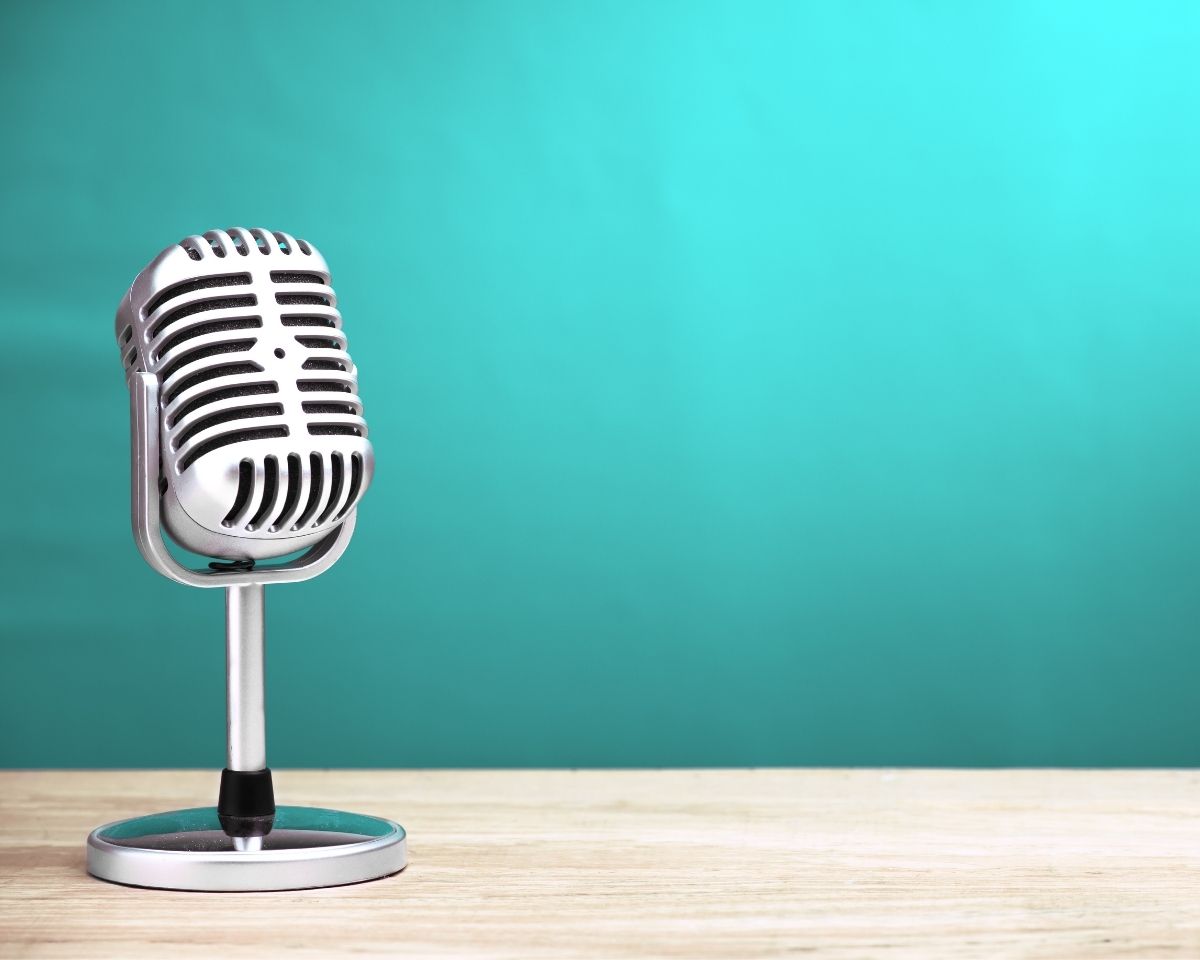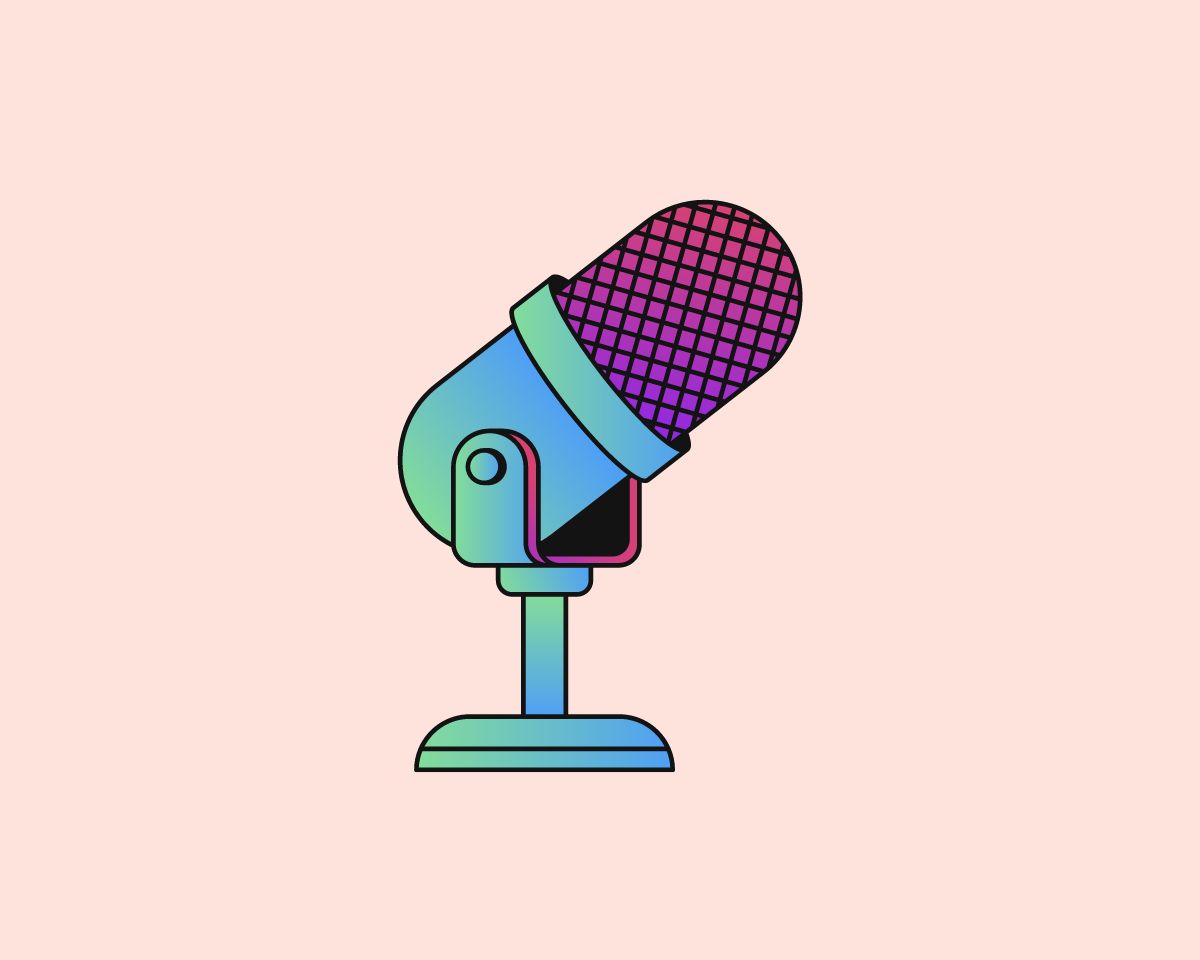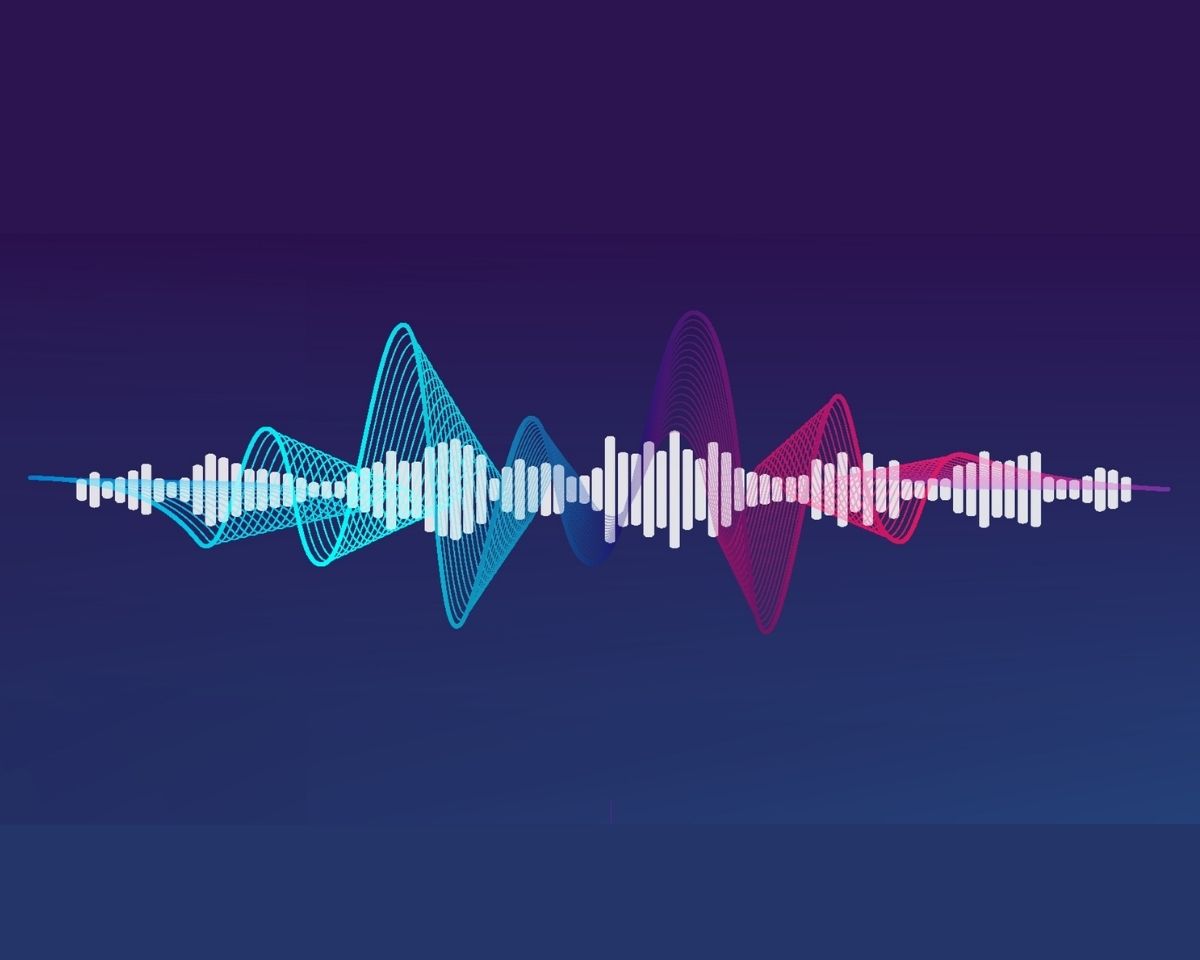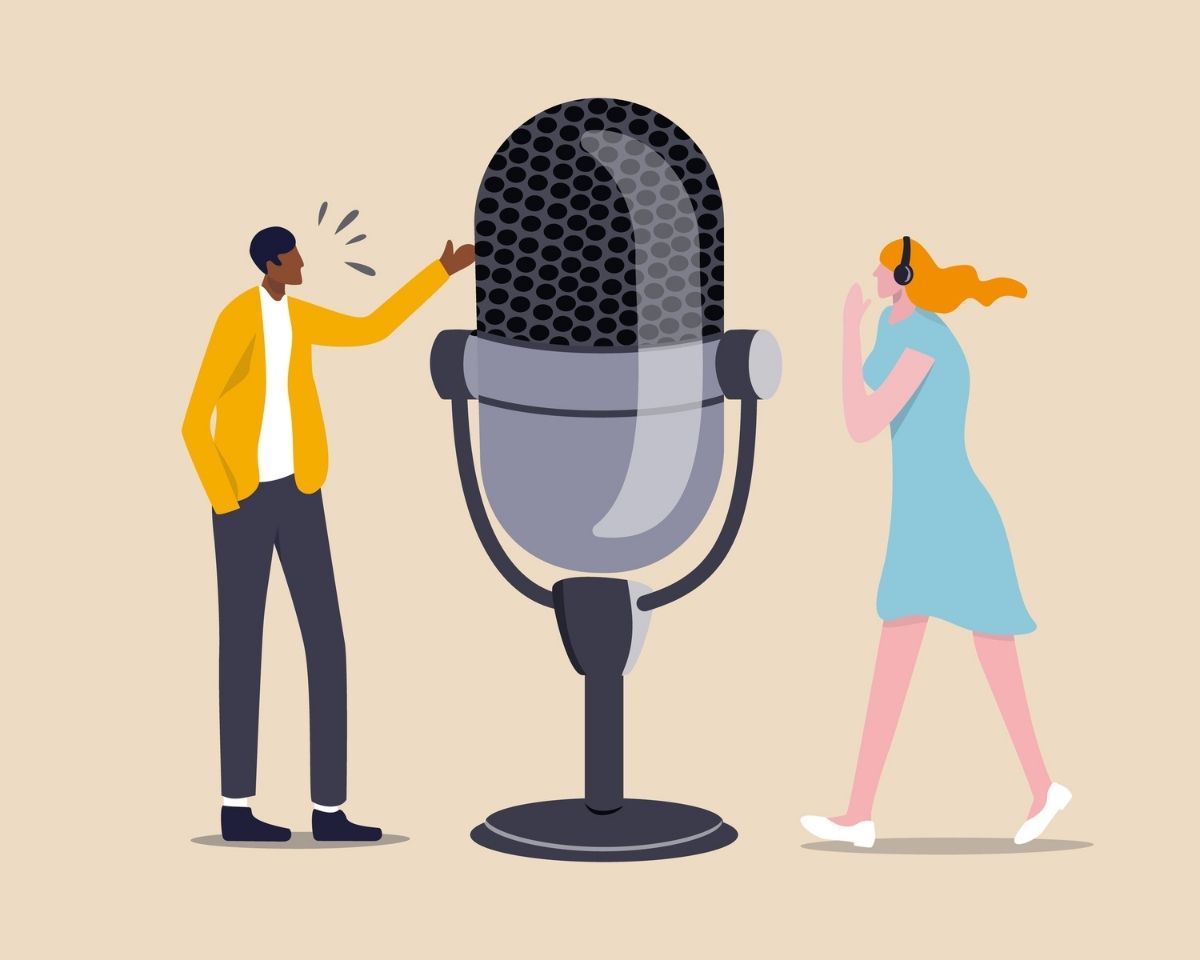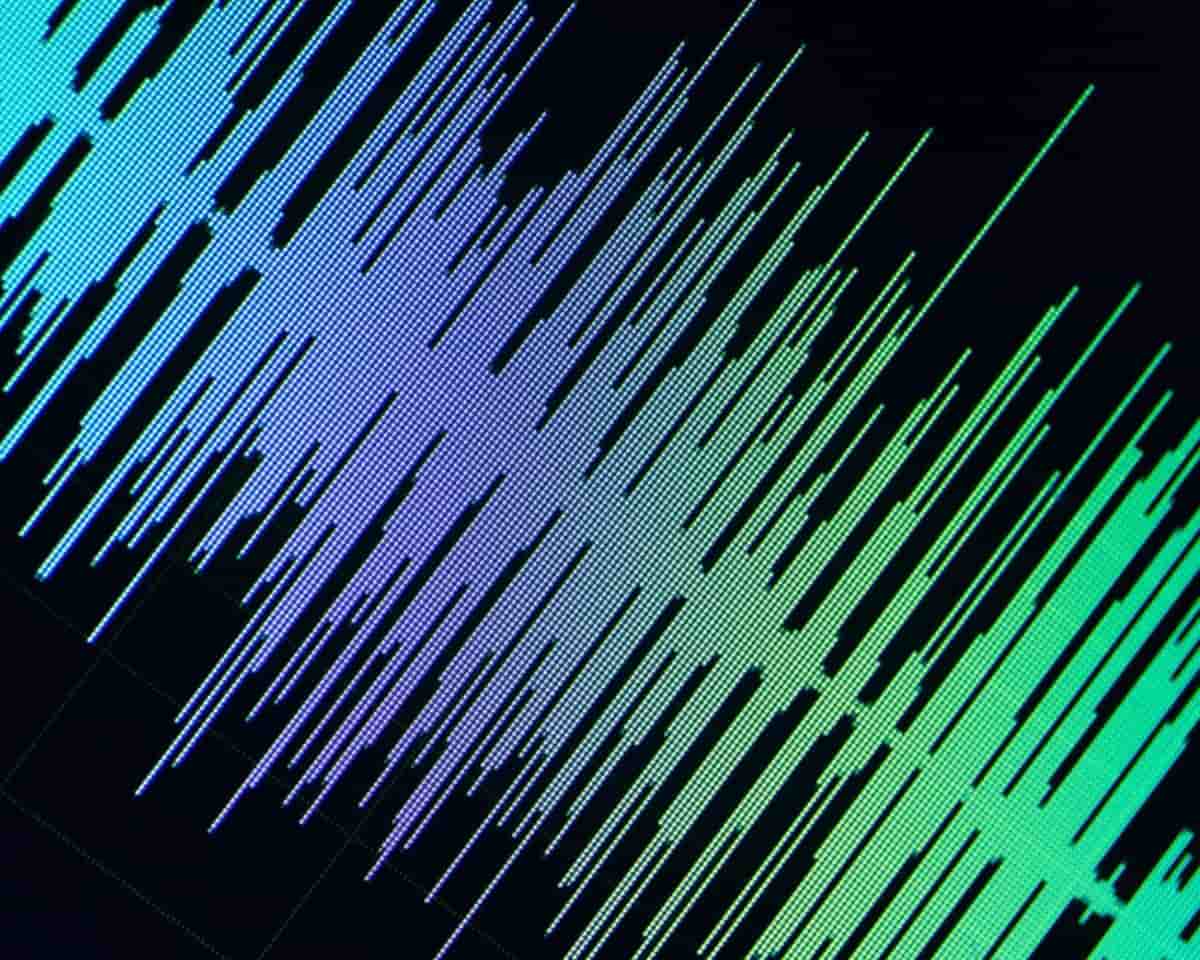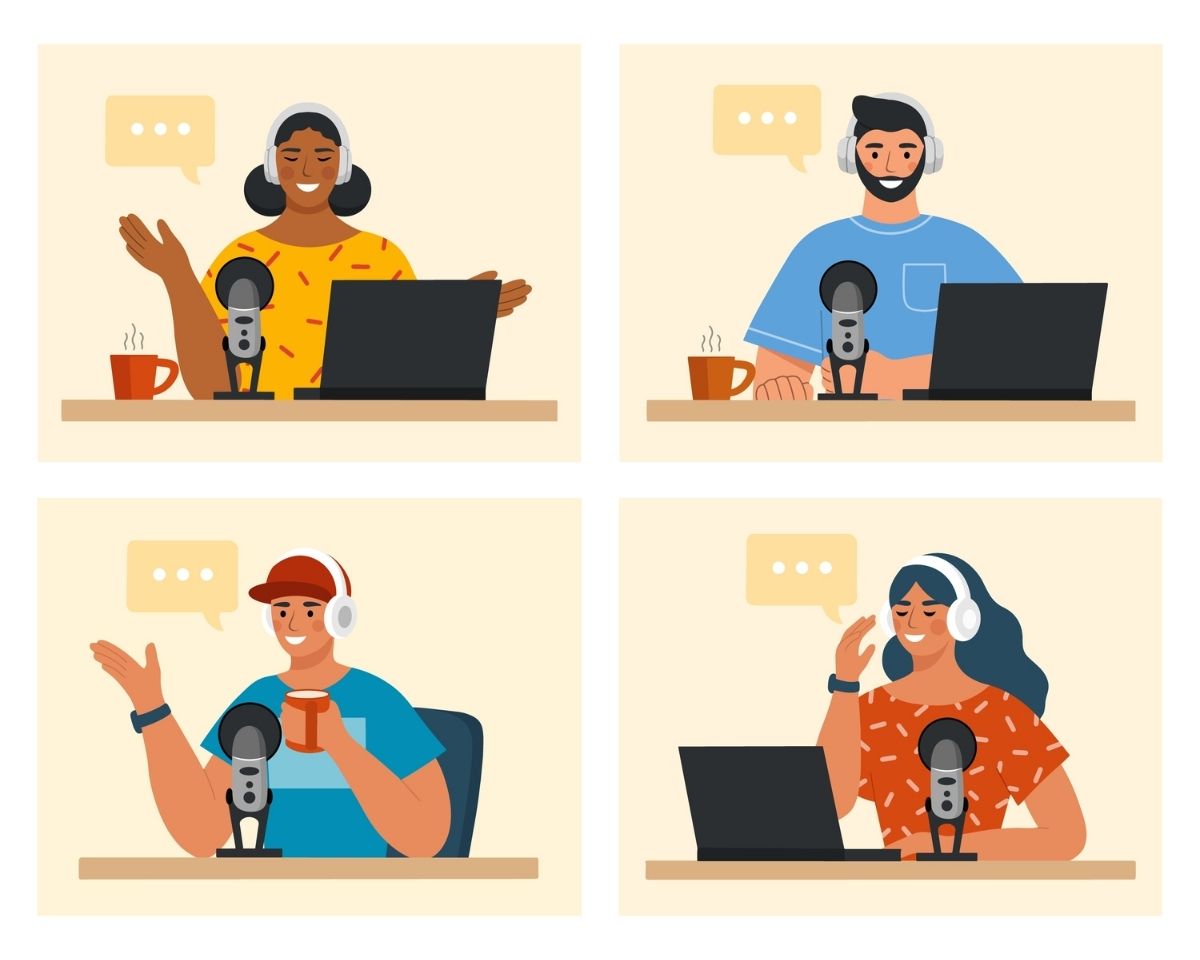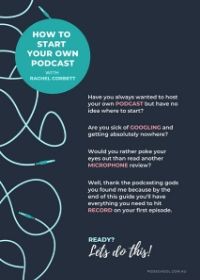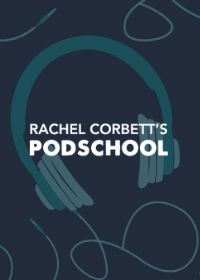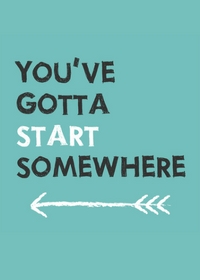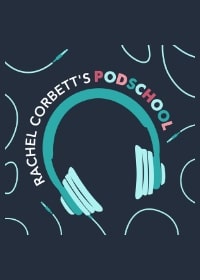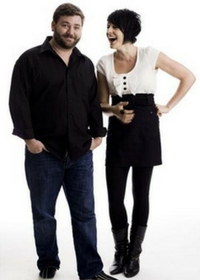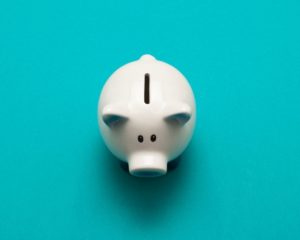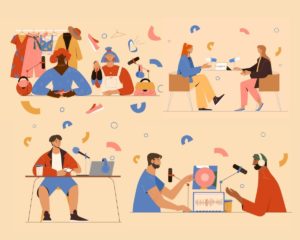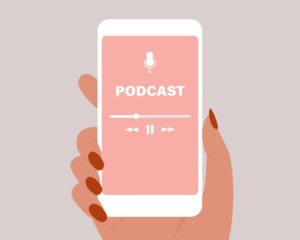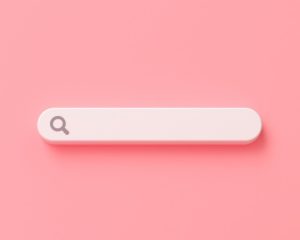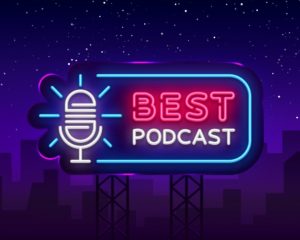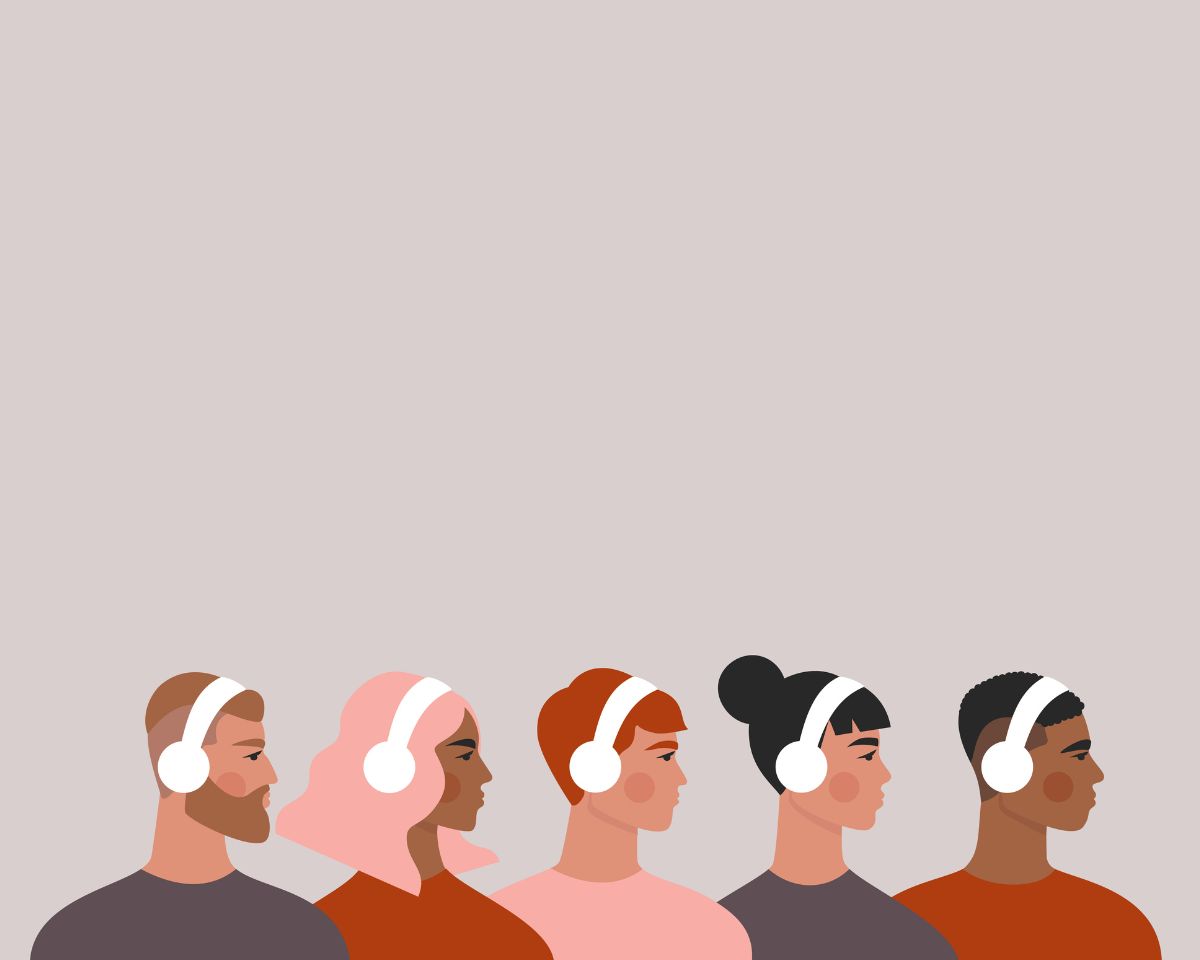
Why headphones are the most important piece of equipment in your podcast kit
Setting aside the obvious need for a microphone and something to record on, the one thing in your podcast kit you can’t live without is a pair of headphones. And that goes for everyone whose dulcet tones will be featured on your show.
This is obviously a given when you’re interviewing a guest via a remote recording platform like Skype, Zencastr or Squadcast because without headphones you won’t be able to hear each other. But if you’re chatting with someone face-to-face or you have a co-host, everyone will need their own pair.
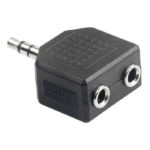
If your guest wants to bring their own headphones for the podcast, earbuds will do fine. But it’s always good to carry a spare pair just in case.
Just remember, if you’re going to supply headphones make sure you get ones that go over a guest’s ears rather than into them because some people are funny about having a strangers ear wax in their earholes…understandably.
So now that you know what you need, here’s why…
Wearing headphones will make you a better podcast presenter
I doubt there’s a person alive who, when hearing themselves on tape for the first time, hasn’t said: “I don’t sound like that!”
Newsflash. You do.
If you’ve never recorded your voice or worked in radio or podcasting, the only way you’ve heard yourself is through your cheekbones. And since everyone else is standing out in front of you when you speak, you’ll never hear yourself the way other people do. Unless you wear headphones.
Headphones take your ears (not literally) from the side of your head and put them right in front of your mouth so you can hear exactly what you sound like to others.
This is an important tool when you’re presenting a podcast because it gives you a huge amount of control when it comes to adjusting your voice and presentation style on the fly.
As you talk into the microphone your brain processes what it’s hearing through the headphones which gives you the chance to self-review and make minor tweaks. This is obviously done in a split second and can include changing your tone, volume or any of the millions of variables you can adjust when you’re presenting a show.
If you don’t have much experience recording audio this might not seem important but trust me, it makes a huge difference to your performance and ultimately to how you sound.
Wearing headphones improves your mic technique
This is true of both you and your guest.
If you can hear you’re off-mic, too loud or that you’re popping every time you say a word starting with a hard consonant (‘p’, ‘b’, ‘k’), wearing headphones will help you adjust the way you’re using the microphone in the moment.
The more experience you have with this immediate feedback the better your mic technique will be in the long run.
Wearing headphones will make editing your podcast easier
Editing takes a lot of time so the more work you can do at the recording stage to make the process easier, the better. And one of the best ways to control audio is by listening to it as you record.
Microphones pick up more than you can hear on your own. A slight breeze, the buzz of a vending machine, an air conditioner; it’s all there on tape and you need to hear that when you’re recording so you can make the necessary adjustments.
The last thing you want is for audio to be unusable or for the background noise to mean your edits are really obvious.
If you’re not monitoring as you’re recording your podcast through your headphones it’s not uncommon to find out later things are impossible to fix. Or to spend hours repairing something that could have been avoided entirely.
This becomes even more crucial if you’re recording with a guest because you never want to ring someone and say “Can we do that again, there was a problem with the audio?”
Not only is it unprofessional to ask someone to re-record but trying to re-capture the genuine reaction you had to their advice, stories or jokes is almost impossible.
You want to make sure each conversation is as natural as it can be and having to pretend you’re doing it for the first time makes that much harder.
Wearing headphones means you won’t have to micro-manage your podcast guest
Even a guest with zero microphone experience will benefit from wearing headphones because they’ll be able to hear if they’re on-mic or not or if they’re too loud or soft.
If they can’t hear themselves, they’re more likely to pay little or no attention to the microphone and that means you’ll probably be interrupting them every two seconds to say ‘Could you come a little closer?” or “Just watch that you’re not too close to the mic.’
No one wants to be constantly reminded they suck at talking and it’s a quick way to make your guest feel self-conscious and uncomfortable. It will also put a handbrake on the flow of conversation which means you won’t get the best out of them.
If they’re wearing headphones they’ll be more likely to self-regulate, so you can stick to being interested in what they have to say.
Wearing headphones can save your podcast
There are a million different ways your show can be ruined during the recording phase but wearing headphones can save you from a lot of them like…
Levels that are too high
It’s important to check your levels when recording to make sure they never go into the red but usually, this is something you’ll test before you start.
When you’re in the middle of an interview it’s a good thing, in theory, to glance at them but chances are you’ll be so wrapped up in the conversation you’ll probably forget about it. And that’s where your headphones come in handy.
If you’re listening as you record you’ll know if you’re too high or low and you’ll be able to adjust as you go along. This will help when it comes time to edit because you won’t need to painstakingly go through each section raising and lowering levels which is time-consuming and annoying.
Whatever you do just make sure the levels never go into the red. You can always increase the volume of audio in post but if it ‘blows out’ i.e. is too loud, the only thing you can do is send it to the audio graveyard.
Popping
‘Popping’ is the term we use for harsh sounds that are created by words that start with hard consonants like ‘pop,’ or ‘kettle.’ This popping sound often occurs when words are said too close to the microphone.
A lot of this can be avoided by using a pop guard or by talking slightly across the mic rather than directly down the barrel, but even if your mic technique is on point, sometimes you’ll still pop.
This is one of those things that’s impossible to detect without headphones and hella annoying to fix.
There are some effects in editing software that will remove this sound but if the pop is really bad the edits can often sound over-processed and therefore, obvious.
You can also go in and cut out the offending pops manually. But that’s a painstaking process that can turn a 30-minute edit into an all-night one.
Ambient noise
There are many types of ambient noise that impact the sound of your show but the worst offender is wind. Problem is, it’s really hard to hear how badly it’s affecting your recording unless you’re wearing headphones.
Think about a phone conversation you’ve had with someone when it sounds like they’re in a cyclone. Often it doesn’t take much wind to create that effect. In fact, if you’ve ever been the person on the windy end of the phone you often don’t know until the person you’re talking to says “are you in a wind tunnel?”
Listening to a conversation with a lot of wind noise is incredibly irritating and often drowns out what’s being said. It’s also impossible to fix in post so wearing headphones will make sure you don’t have to chuck out your audio because of mother nature.
And there you have it podcasters, my tips for why headphones should be your new audio best friend.
And one final piece of advice – when you’re using them, make sure the volume is turned up LOUD. That goes for the edit too. If you want total control over your podcast you have to be able to hear every little bit of it.
Got a burning podcasting question you’d like answered? Send me an email.
Want to start your own podcast but need a little help? Download my “How To Start A Podcast” guide or sign up for my online podcasting course, PodSchool.
Hello and welcome to the show. This week I am answering your question from Pearcey who emailed me to ask me how he can attract high-profile guests to his show. This is a tough one particularly if you don't have any connections or any relationships with people that are high profile. It's not impossible by any means but there are some things you need to do to set yourself up for the best chance of success. The first thing is you need to have a really long lead time and by that I mean a long time between where you're sitting now and your episodes being released. High-profile people are going to be busy. It also might be tough to get people to say yes. So you really need as much time ahead of you as possible to try and book people because you're going to need to work in with their schedule rather than yours. You can't say to somebody "I really want you on the show but the episode comes out next week so can we do it in the next five days?" You need to say "Hey I've got a podcast coming out. Is there any time that you can lock me in?" and it might be three months until you can get them on board.
It's really important to give yourself as much space between coming up with the idea and going live so you're not getting to the day before the episode is due every week and thinking "Oh my goodness I'm going to have to get a Tom Cruise impersonator to get on the show because I can't get the guest that I wanted.
The other thing to do is to have a really easily definable concept. You need to be able to sell your idea in a single line so that the person on the other end of that email or the phone call thinks "I totally get why this person has approached me and I totally understand what they're asking for." If it's just a general concept you're pitching that's not going to be a very compelling invitation for somebody who has a busy schedule and is obviously successful. Also, it's going to be a bit dangerous for them. It will be scary to think "Gosh I'm going to sit down and have a conversation with somebody I don't know and we're going to cover topics I really can't work out what they are." If you are cold emailing someone, make sure that you have as compelling a pitch as possible that it's as specific as possible and that it really relates to that guest so they know exactly what you're asking them to do.
It might also be worth thinking about having shorter seasons. It's a lot harder to book 52 guests than it is to book six guests. So maybe start out small, send those emails, start making those connections. It might take you six months to get somebody to reply to you. Start making those connections and trying to reach out and all you need is one person to say yes because as soon as you have one person that says yes, in the next email you can say "oh I've already got this person signed up" or "I've had a chat with this person" which can give the next person you approach some sense of security that you are somebody that can be trusted because you've already managed to get that guest on board.
Whatever you do make sure that you are looking for high-profile guests for the right reasons. If you think that getting a high-profile guest on your show every week is going to be the fastest way to grow an audience. Then cool your jets kiddo because it is no guarantee of building a giant audience and high-profile guests can smell that stuff a mile off.
If you head back into the feed of this podcast you'll find an episode that talks about whether high profile guests are a good way to grow your audience and you will find that the reality of how many extra listeners a guest brings in, even if they've got 500000 Twitter followers, is not as big as you would think and often the work that it takes to get those people on your show is not worth the payoff. You're much better off thinking who could I bring on the show who has a lower profile that would be much more open to jumping on a podcast and I can create really good content that people would want to listen to rather than just trying to hitch my show to somebody who has a lot of Twitter followers. It's not a great way to build an audience and it's not as successful as you would think. So think about why you want those high-profile guests on and whether you might not get better content out of people who aren't so guarded.
If you're looking at guests especially ones that have a media profile there's a lot of stuff they're not going to want to talk about there's a lot of areas they're not going to want to go into particularly with somebody they don't know but if you're talking to somebody who might be really interested in pushing a book that they've written or their website or they're just a really interesting person with a great story and zero profile you're probably going to get a much better episode out of that than you ever would with somebody who might be a bit more guarded. You really have to think about what you're going to get the best content out of because people come back time and time again for great stories and interesting tales no matter who the person telling them is so don't feel like you need to rely on high profile guests or that that's the only way you're going to build an audience because you might actually be making it much more difficult for yourself. High profile guests might not be the solution to your podcasting problems but if they are perfectly suited to your content and you really do think they're the right way to go there make sure you give yourself plenty of time have a really easily pickable concept and have patience. Thanks so much for listening. If you are enjoying the tips on this podcast please head to wherever you listen to the show and leave a review. I will send you big audio hugs. Also head to podschoolpodcast.com where all the show notes for this and other episodes are as well as a link to my online podcasting course, PodSchool.com.au. I'll see you next week and until then, happy podcasting.
